|
Surgery FAQs
What You Need to Know Before Your Pet's Upcoming Surgery
Many people have questions about various aspects of their pet's surgery and we hope this information will help with the decisions you will need to make before your pet's upcoming surgery. Our surgery check in forms are available at the bottom of the page. We need you to drop your pet off for surgery in the morning, between 8 and 8:45 am. You may pick your pet up from out patient surgery after 4 pm.
Is the anesthetic safe?
Today's modern anesthetic monitors have made surgery much safer than in the past. Here at the Pet Hospital of Penasquitos, we do a thorough physical exam on your pet before administering anesthetics to ensure that a fever or other undetected illness won't be a problem. We also adjust the amount and type of anesthetic used depending on the health of your pet.
We offer in-house blood testing before surgery. Our doctors prefer a comprehensive screening because it gives them the most information to ensure the safety of your pet. For geriatric or ill pets, additional blood tests, electrocardiograms, or x-rays may be required before surgery as well. Every pet needs blood testing before surgery to screen for anemia, platelet deficiencies, low blood glucose or protein, electrolyte imbalances, liver or kidney dysfunction, or any other disease that may not be apparent from history and physical examination. Even apparently healthy animals can have problems that cannot be detected without blood testing. If there is a problem, it is much better to find it before it causes anesthetic or surgical complications. If serious problems are detected, surgery can be postponed until the problem is corrected. All animals will handle the anesthetic better if they receive intravenous fluids during surgery.
Our office will contact you the evening before your pet's procedure with pre-anesthetic instructions and to answer any questions you may have. If you miss or do not receive the call please call our office.
How do you monitor anesthesia?
We assign a doctor and technician to every anesthetic procedure. The technician monitors anesthetic depth, temperature, heart and respiratory rate, blood pressure, oxygen saturation of blood and an electrocardiogram continuously throughout the procedure and until the patient is fully recovered. The veterinarian and technician are in constant communication.
Will my pet have stitches?
For most surgeries we will use stitches (also called sutures) which are typically removed ten to fourteen days post operatively except in reptiles where they are removed six weeks after surgery. Some surgeries have absorbable sutures which will dissolve on their own and do not need to be removed. With either type of suture, you will need to check on the incision daily for swelling, discharge or redness.
Most dogs and cats will lick at the incision and we reccomend an Elizabethan Collar to prevent them from opening up or infecting the surgery site. You will also need to limit your pet's activity level for a time and no baths are allowed for the first 10-14 days after surgery.
Please review the post-surgery care sheet given to you at the time of your pet's hospital discharge. Please contact our office if you have any questions or concerns.
Will my pet be in pain?
Anything that causes pain in people can be expected to cause pain in animals. Pets may not show the same symptoms of pain as people do; they usually don't whine or cry, but you can be sure they feel it. Pain medications needed will depend on the surgery performed. Major procedures require more pain relief than things like minor lacerations.
For dogs and exotic animals, we may recommend an oral anti-inflamatory medication after surgery to lessen the risk of discomfort and swelling. We use newer medications, which are less likely to cause stomach upset and can be given even the morning of surgery. Cats don't tolerate oral anti-inflamatory medications as well as others but we have good pain medications for them as well.
Any animal that appears painful will receive additional pain medication. We use narcotic pain patches for some surgeries in animals as well as injectable pain medications. Providing whatever pain relief is appropriate is a humane and caring thing to do for your pet. Remember, they feel pain just like us, even if they do not express it as we would.
What other decisions do I need to make?
While your pet is under anesthesia, it is the ideal time to perform other minor procedures, such as teeth cleaning, ear cleaning, nail trimming or implanting an identification microchip. If you would like a treatment plan for these extra services, please call ahead of time or we can discuss this the morning of surgery. Make sure the person bringing in the pet for surgery can make these decisions.
When you bring your pet in for surgery, we will need to 5 to 10 minutes of time to fill out paperwork and make decisions on the blood testing and other options available. When you pick up your pet after surgery you can also plan to spend about 15 minutes to go over your pet's home care needs.
Our office will contact you the evening before your pet's procedure with pre-anesthetic instructions and to answer any questions you may have. If you miss or do not receive the call please call our office at 858-484-3490.
To Save Time please download our Anesthetic Consent Form and Surgery Check-In, print and bring with you.
 Anesthetic Consent Form Anesthetic Consent Form  Surgery Check-In Surgery Check-In
Understanding your Pet's Blood Work
What does all that blood work mean and why does the Pet Hospital of Penasquitos recommend a blood test. The blood test help us determine your pet's health status and causes of illness accurately, safely, quickly and lets us monitor the progress of medical treatments we recommend. If you have questions, ask our staff members, it is our mission to help you understand our recommendations and for you to be a partner in your pet's care.
Complete blood count (CBC) - It is the most common test, a CBC gives information on hydration status, anemia, infection, the blood's clotting ability, and the immune system's ability to respond.
HCT (hematocrit) - Measures the percentage of red blood cells to detect anemia and dehydration.
Hb and MCHC (hemoglobin and mean corpuscular hemoglobin concentration) - Measure hemoglobin, the oxygen-carrying pigment of red blood cells (corpuscles).
GRANS and L/M (granulocytes and lymphocytes/monocytes) are specific types of white blood cells.
WBC (white blood cell) count classifies and measures the body's immune cells. Increases or decreases indicate certain diseases or infections.
EOS (eosinophils) are a specific type of white blood cells that, if elevated, may indicate allergic or parasitic conditions.
PLT (platelet count) measures cells that help stop bleeding by forming blood clots.
RETICS (reticulocytes) are immature red blood cells. high or low levels help classify anemias.
Serum chemistry profile
These common tests evaluate organ function, electrolyte status, hormone levels, and more.
ALB (albumin) - A serum protein that helps evaluate hydration, hemorrhage, and intestinal, liver, and kidney health.
ALKP or ALP (alkaline phosphatase) elevations may indicate liver damage, Cushing's disease, and active bone growth in young pets.
ALT (alanine aminotransferase) is a sensitive indicator of active liver damage but doesn't indicate the cause.
AMYL (amylase) elevations show pancreatitis or kidney disease.
AST (aspartate aminotransferase) increases may indicate liver, heart, or skeletal muscle damage.
BUN (blood urea nitrogen) reflects kidney function. An increased blood level is called azotemia and can be caused by kidney, liver, and heart disease, urethral obstruction, shock, and dehydration.
Ca (calcium) deviations can indicate a variety of diseases. Tumors, hyperparathyroidism, kidney disease, and low albumin are just a few of the conditions that alter serum calcium.
CHOL (cholesterol) is used to supplement diagnosis of hypothyroidism, liver disease, Cushing's disease, and diabetes mellitus.
Cl (chloride) - An electrolyte often lost with vomiting and Addison's disease. Elevations often indicate dehydration.
Cortisol - A rmone that is measured in tests for Cushing's disease (the low-dose dexamethasone suppression test) and Addison's disease (ACTH stimulation test).
CREA (creatinine) reflects kidney function. This test helps distinguish between kidney and nonkidney causes of elevated BUN.
GGT (gamma-glutamyl transpeptidase) - An enzyme that, when elevated, indicates liver disease or corticosteroid excess.
GLOB (globulin) - A blood protein that often increases with chronic inflammation and certain disease states.
GLU (glucose) is blood sugar. Elevated levels may indicate diabetes mellitus or stress. Low levels can cause collapse, seizures, or coma.
K (potassium) - An electrolyte lost with vomiting, diarrhea, or excessive urination. Increased levels may indicate kidney failure, Addison's disease, dehydration, and urethral obstruction. High levels can lead to cardiac arrest and death.
LIP (lipase) - An enzyme that may indicate pancreatitis when elevated.
Na (sodium) - An electrolyte lost with vomiting, diarrhea, and kidney or Addison's diseases. This test also helps indicate hydration status.
PHOS (phosphorous) elevations are often associated with kidney disease, hyperthyroidism, and bleeding disorders.
TBIL (total bilirubin) elevations may indicate liver or hemolytic disease. This test helps identify bile duct problems and certain types of anemia.
TP (total protein) indicates hydration status and provides information about the liver, kidneys, and infectious diseases.
T4 (thyroxine) - A thyroid hormone. Decreased levels often signal hypothyroidism in dogs, while high levels indicate hyperthyroidism in cats.
| 






